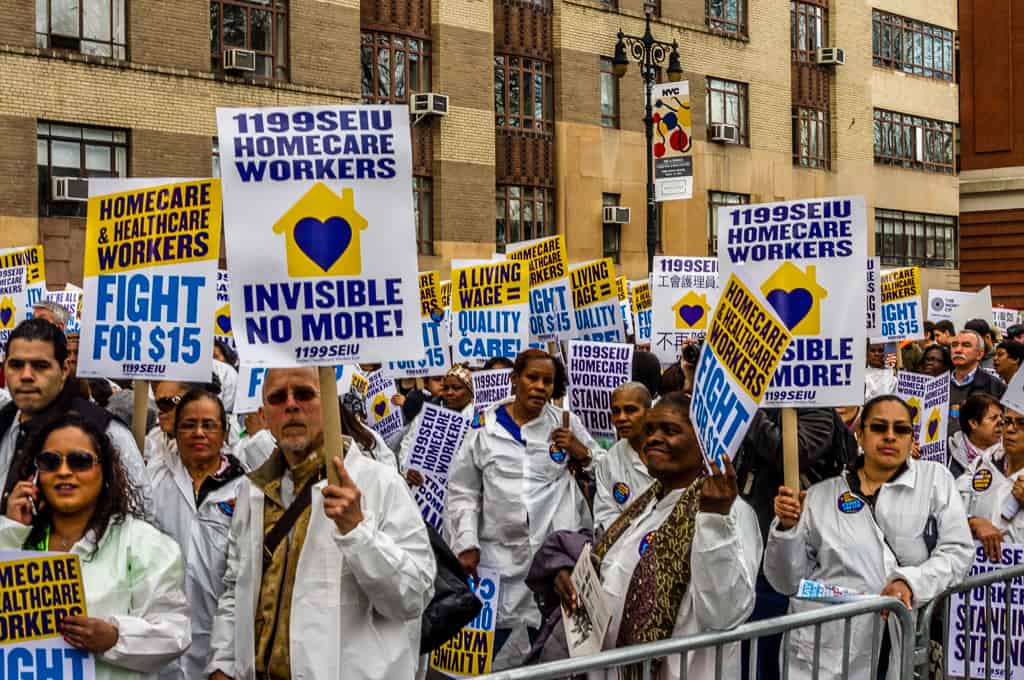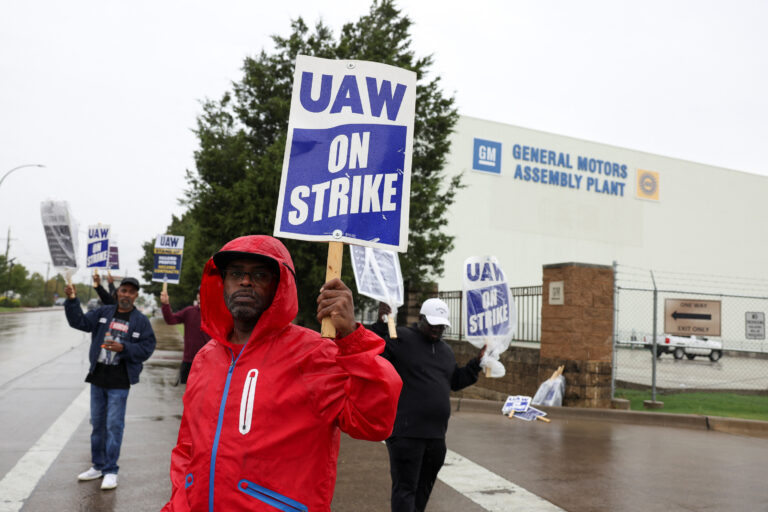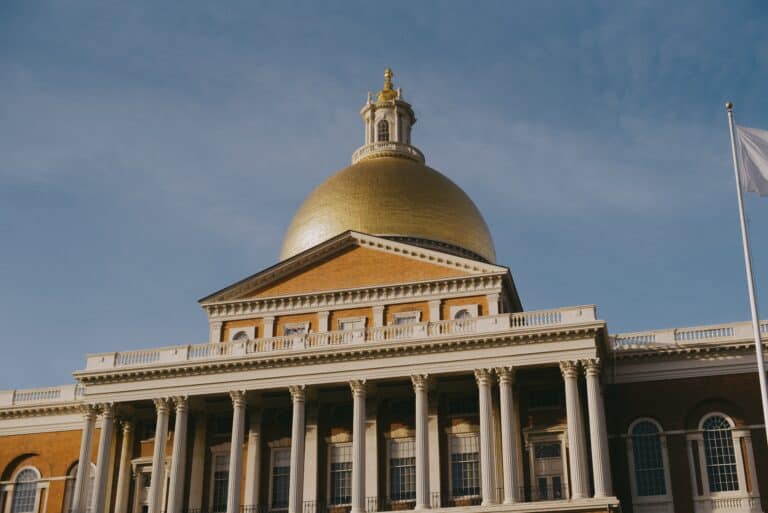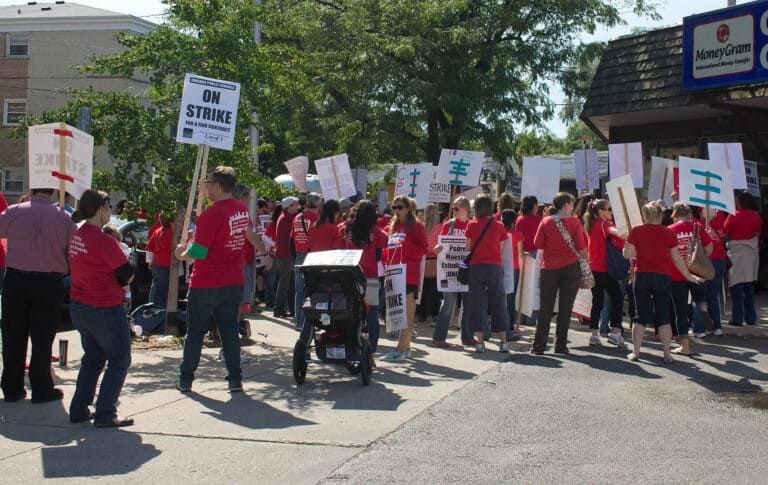
Benjamin Sachs is the Kestnbaum Professor of Labor and Industry at Harvard Law School and a leading expert in the field of labor law and labor relations. He is also faculty director of the Center for Labor and a Just Economy. Professor Sachs teaches courses in labor law, employment law, and law and social change, and his writing focuses on union organizing and unions in American politics. Prior to joining the Harvard faculty in 2008, Professor Sachs was the Joseph Goldstein Fellow at Yale Law School. From 2002-2006, he served as Assistant General Counsel of the Service Employees International Union (SEIU) in Washington, D.C. Professor Sachs graduated from Yale Law School in 1998, and served as a judicial law clerk to the Honorable Stephen Reinhardt of the United States Court of Appeals for the Ninth Circuit. His writing has appeared in the Harvard Law Review, the Yale Law Journal, the Columbia Law Review, the New York Times and elsewhere. Professor Sachs received the Yale Law School teaching award in 2007 and in 2013 received the Sacks-Freund Award for Teaching Excellence at Harvard Law School. He can be reached at [email protected].
As Salon reports, Connecticut Governor Ned Lamont has issued an order calling up the National Guard in response to the coming strike by several thousand nursing home employees in the state. The order reads as follows:
I authorize you to immediately call up a sufficient force of members of the armed forces of the state to support as needed the Department of Public Health in protecting the public health and safety in response to any potential work stoppage or strike of workers at long-term care facilities or other congregate settings in the state beginning on or about May 14, 2021.
Much can be said about a Democratic governor deploying the National Guard in response to a lawful strike by unionized employees. Here, I only want to comment briefly on the labor law implications of this move. Labor preemption doctrine, as established in Machinists, dictates that states lack legal authority to regulate conduct – including strikes – that Congress meant to leave to the “free play of economic forces.” This means that states cannot, for example, prohibit strikes that are protected under federal law. Nor can the state take steps to ensure that one side, or the other, prevails in a strike. Thus, if during a private sector strike a state decided to reimburse employers for the costs of hiring permanent replacements, or simply supplied state employees for an employer to use as replacement workers, those actions would be preempted.
So, what of deploying the National Guard during a strike? Helpfully, for purposes of answering this question, Connecticut has used the National Guard in response to a previous nursing home strike and we have a federal district court opinion that adjudicates the legality of this response. In its opinion, the court first affirmed that labor preemption doctrine does in fact govern the use of National Guard troops during a strike. In other words, the state’s use of National Guard troops is subject to labor preemption restrictions just as other forms of state intervention and regulation are.
Next, the court held that labor preemption rules permit states to deploy the National Guard in response to a nursing home strike only to the extent that the Guard is useddirectly to address “imminent danger to the health of nursing-home residents.” Thus, Connecticut’s previous deployment of the Guard was legal only because the state “kept such Guard personnel on standby, and deployed medical personnel only as necessary to maintain staffing at struck nursing homes in the rare instances where all other contingency plans failed and an imminent threat to the health and safety of nursing-homes residents existed.” Only because the Guard was used as a last resort to protect resident health, and only after other extensive contingency plans had been attempted and found inadequate, was the Guard’s use lawful under federal labor law.
On the other hand, the court held that the state’s use of Guard personnel for other purposes was preempted. This meant that the states use of the Guard to transport replacement workers and non-striking workers to and from nursing homes was impermissible. In reaching this part of its holding, the court specifically rejected the state’s claim that using Guard personnel to transport workers was justified by a fear of picket line violence or other unlawful acts by strikers.
In sum, the National Labor Relations Act imposes tight restrictions on Governor Lamont’s use of the National Guard during the upcoming strike by nursing home workers. Should Guard personnel be used in ways not directly necessary to preventing imminent danger to the health of nursing-home residents, that use will be barred by federal law.










Daily News & Commentary
Start your day with our roundup of the latest labor developments. See all
July 18
Trump names two NLRB nominees; Bernie Sanders introduces guaranteed universal pension plan legislation; the DOL ends its job training program for low-income seniors; and USCIS sunsets DALE.
July 17
EEOC resumes processing transgender workers' complaints; Senate questions Trump's NLRB General Counsel nominee; South Korean unions strike for reforms.
July 16
The U.S. Department of Health and Human Services lays off thousands of employees; attorneys for the Trump Administration argue against revealing plans to reduce the workforce of federal agencies; and the Fourth Circuit grants an emergency stay on the termination of TPS for thousands of Afghans.
July 15
The Department of Labor announces new guidance around Occupational Safety and Health Administration penalty and debt collection procedures; a Cornell University graduate student challenges graduate student employee-status under the National Labor Relations Act; the Supreme Court clears the way for the Trump administration to move forward with a significant staff reduction at the Department of Education.
July 14
More circuits weigh in on two-step certification; Uber challengers Seattle deactivation ordinance.
July 13
APWU and USPS ratify a new contract, ICE barred from racial profiling in Los Angeles, and the fight continues over the dismantling of NIOSH